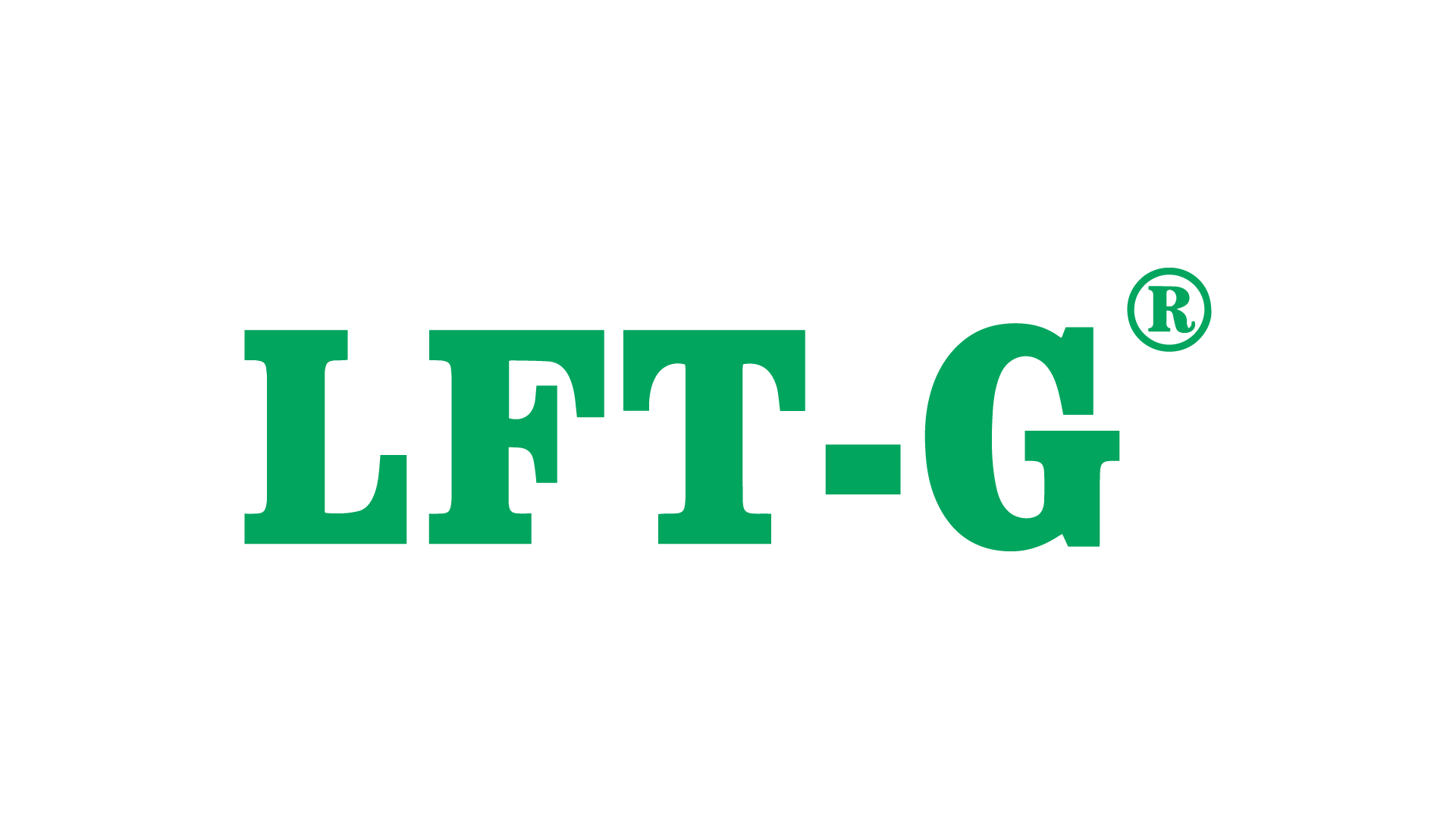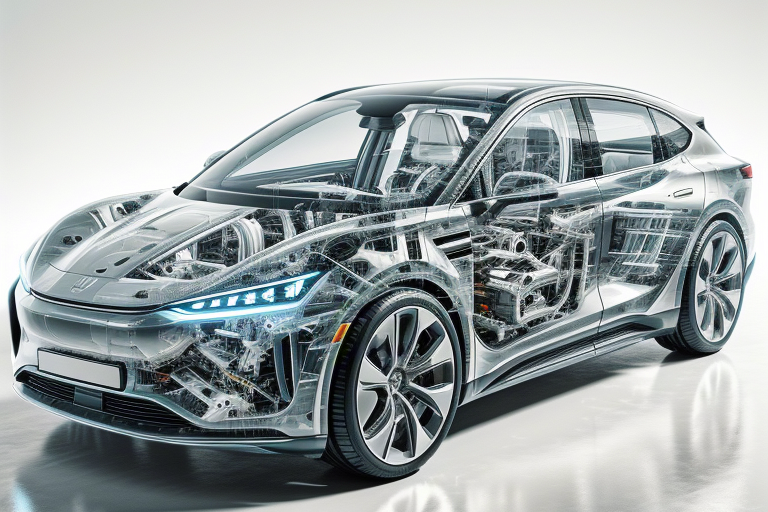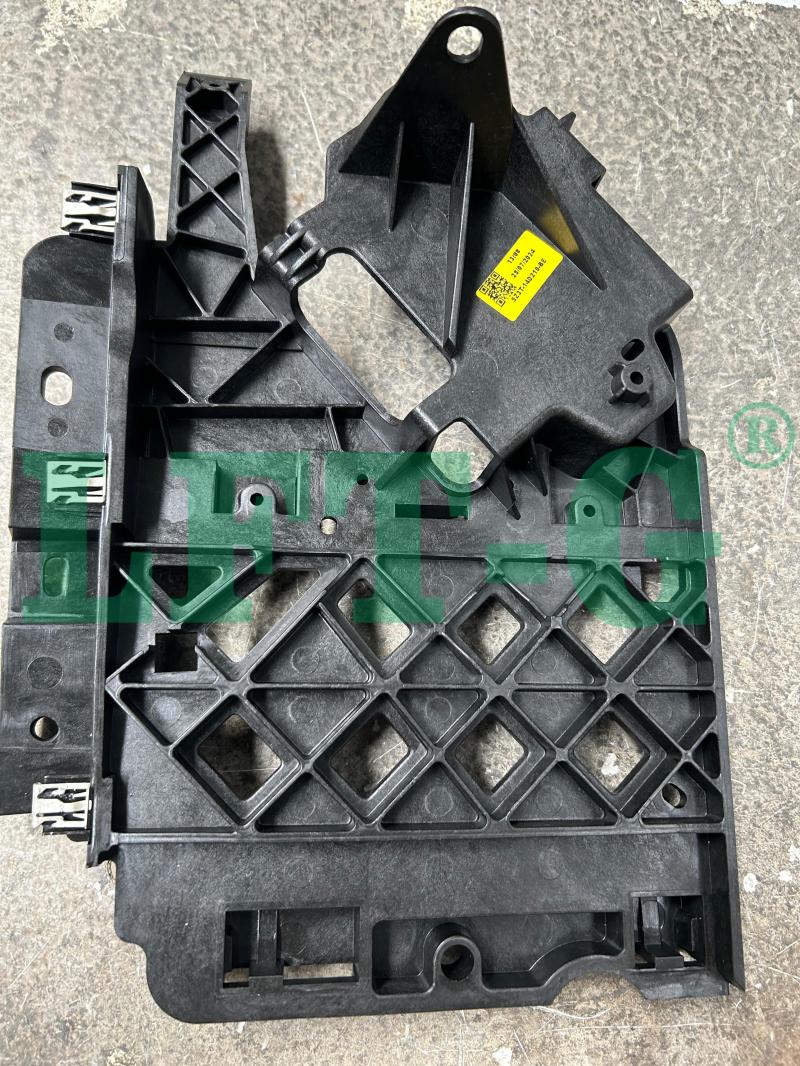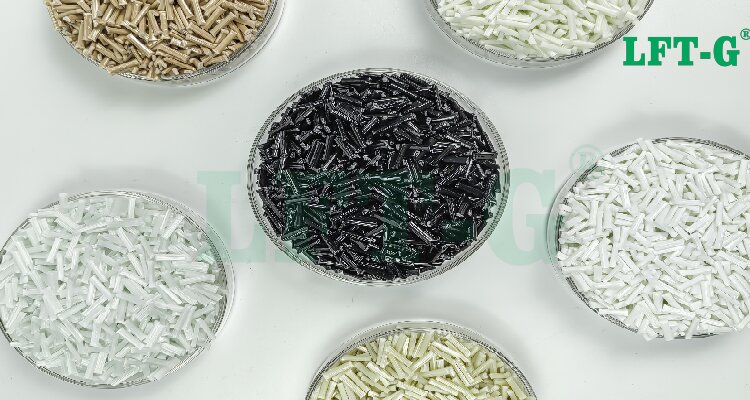nouveau blog

Contexte du projet
Avec la tendance actuelle à une intégration et une modularisation élevées dans les systèmes électriques des véhicules à énergie nouvelle,
composants structurels de la batterie
jouent un rôle de plus en plus crucial dans les plateformes automobiles. Élément essentiel pour le support, la fixation et la protection des modules de batterie, le support de batterie nécessite
haute résistance mécanique, stabilité dimensionnelle et résistance au vieillissement environnemental
, tout en répondant aux demandes de l'industrie en matière de
conception légère, réduction des coûts et recyclabilité
.


Caractéristiques de conception structurelle du produit
Conception porteuse
:La structure globale adopte plusieurs nervures diagonales en forme de X + des raidisseurs en grille de diamant, obtenant une rigidité suffisante tout en réduisant le poids, particulièrement adaptée aux grandes zones de support plates.
Intégration multifonctionnelle
: Comprend plusieurs broches de positionnement, trous de boulons et canaux de drainage pour répondre aux exigences de montage du module de batterie, d'acheminement du câblage électrique et de drainage de l'eau.
Conception à encliquetage
:Les ressorts métalliques intégrés permettent un assemblage rapide et sécurisé avec le châssis du véhicule, améliorant ainsi l'efficacité de l'assemblage.
Bords de protection
:Les nervures surélevées et les protections d'angle fermées améliorent l'amortissement et protègent les bords du boîtier de la batterie.
Matériel Pour m ulation Adv avantages
|
Propriété
Catégorie
|
Points forts des performances
|
|
Force mécanique
longueur
|
Résistance à la flexion > 190 MPa ; résistance aux chocs nettement meilleure que celle du PP renforcé de fibres courtes ; forte résistance aux charges ponctuelles |
|
Stabilité dimensionnelle
|
Coefficient de dilatation thermique considérablement réduit après renforcement par fibres longues ; empêche le gauchissement et la déformation sous l'effet des fluctuations de température |
|
Résistance au vieillissement
|
Les stabilisateurs UV et d'oxydation thermique ajoutés répondent aux conditions de service difficiles du compartiment moteur et du châssis
|
|
Résistance chimique
|
Bonne résistance aux éventuelles fuites d'électrolyte de batterie et aux environnements acides/alcalins doux
|
|
Usinabilité
|
Forte continuité des fibres ; flux et résistance bien équilibrés adaptés aux grandes pièces moulées par injection
|
|
Environnement et recyclage
|
100 % recyclable ; conforme aux réglementations européennes en matière de durabilité automobile
|
Avantages de l'application pratique
1. Remplacement du métal avec une réduction de poids significative
La densité du PP-LGF40 est de seulement 1,15 à 1,2 g/cm³, ce qui permet une réduction de poids de plus de 30 % par rapport aux supports métalliques traditionnels (tels que l'acier embouti), contribuant ainsi à une consommation d'énergie réduite du véhicule et à une autonomie prolongée.
2. Réduction des coûts
Le moulage par injection permet un formage en une seule étape, remplaçant les assemblages multi-pièces ou les structures de soudage métallique, réduisant ainsi le nombre de moules et le travail d'assemblage ; le coût des matières premières est également inférieur à celui des plastiques techniques comme le PA6 ou le PBT.
3. Adaptabilité aux environnements difficiles
Convient aux conditions humides, poussiéreuses et aux températures fréquemment fluctuantes dans les compartiments de batterie ; la résistance à long terme à la corrosion, aux fissures et au desserrage garantit la sécurité du bloc-batterie.
4. Réponse de personnalisation rapide
Nos produits PP-LGF40 prennent en charge des niveaux de débit réglables, des couleurs personnalisables (noir/gris/naturel) et des fonctions ignifuges ou résistantes aux UV en option, répondant aux divers besoins de conception des clients.
Scénarios d'application typiques
Supports de batterie et bases de support de batterie pour châssis de véhicule électrique
Supports de connexion et pinces de fixation du module de batterie
Housses de protection et coussins d'impact pour modules de batterie d'alimentation
Autres pièces structurelles moulées par injection dans le compartiment remplaçant les composants métalliques
À propos de nous
Xiamen LFT Composite Plastic Co., Ltd. se spécialise dans le développement et la production de
matériaux thermoplastiques renforcés de fibres de verre longues et de fibres de carbone longues
, au service d'industries telles que
automobile, outils électriques, appareils électroménagers et équipements industriels
Nous proposons des formulations matures incluant PP-LGF, PA-LGF, PBT-LGF, TPU-LGF, avec
assistance à guichet unique
du développement des matériaux à l'optimisation structurelle, permettant aux clients de réaliser efficacement «
plastique-acier
« mises à niveau.
Pour des demandes d'échantillons, de fiches techniques ou d'études de cas, veuillez contacter notre équipe technique.
